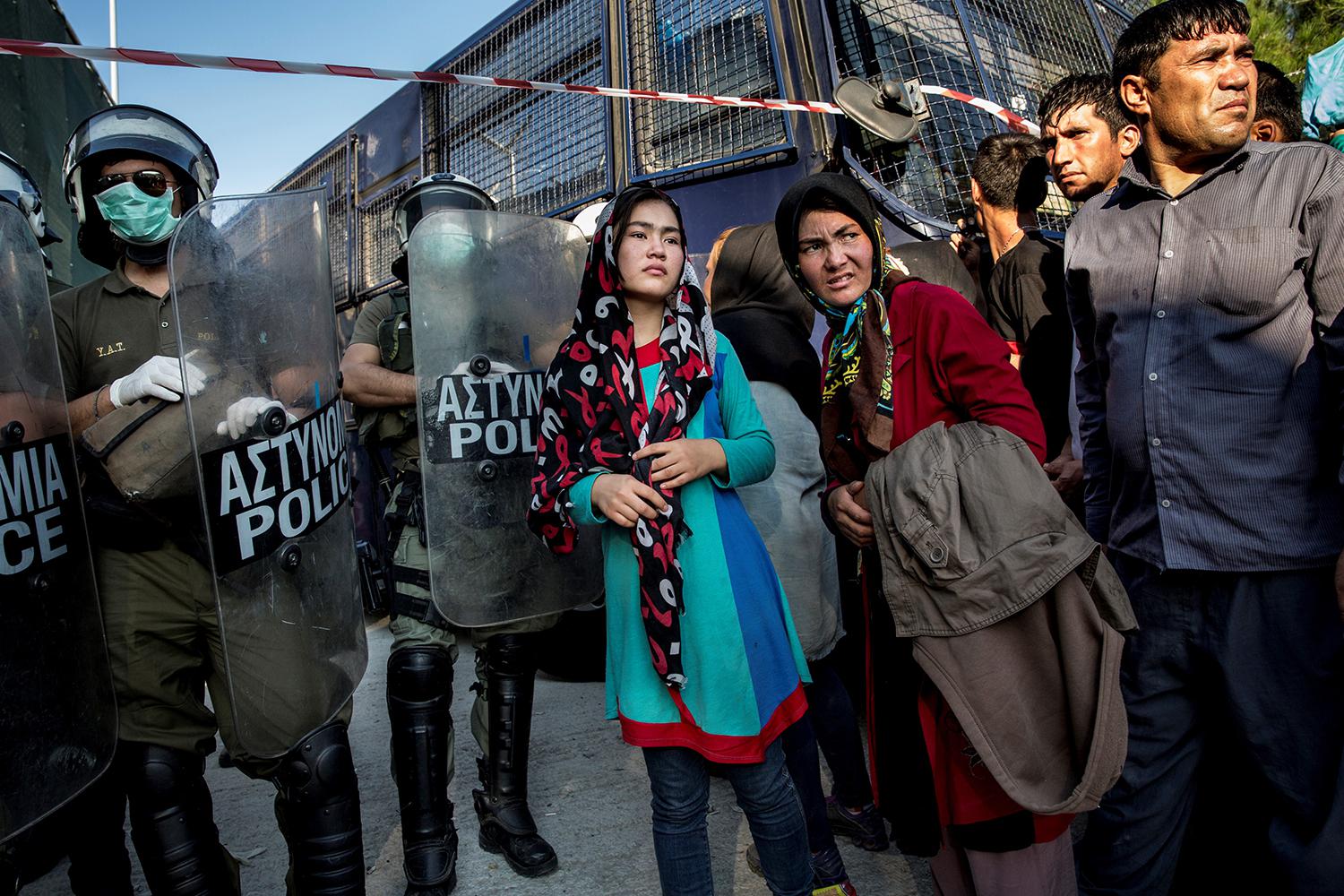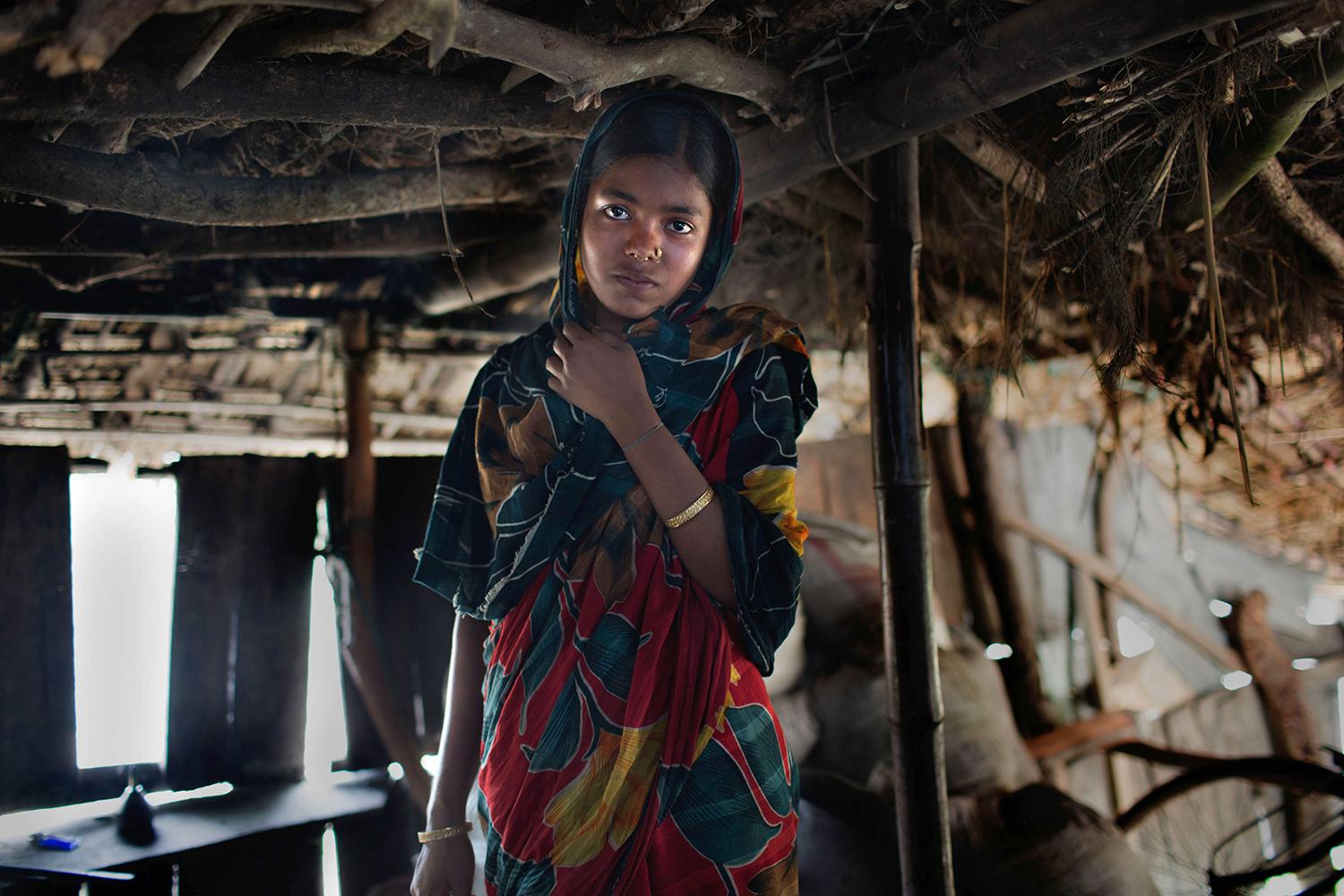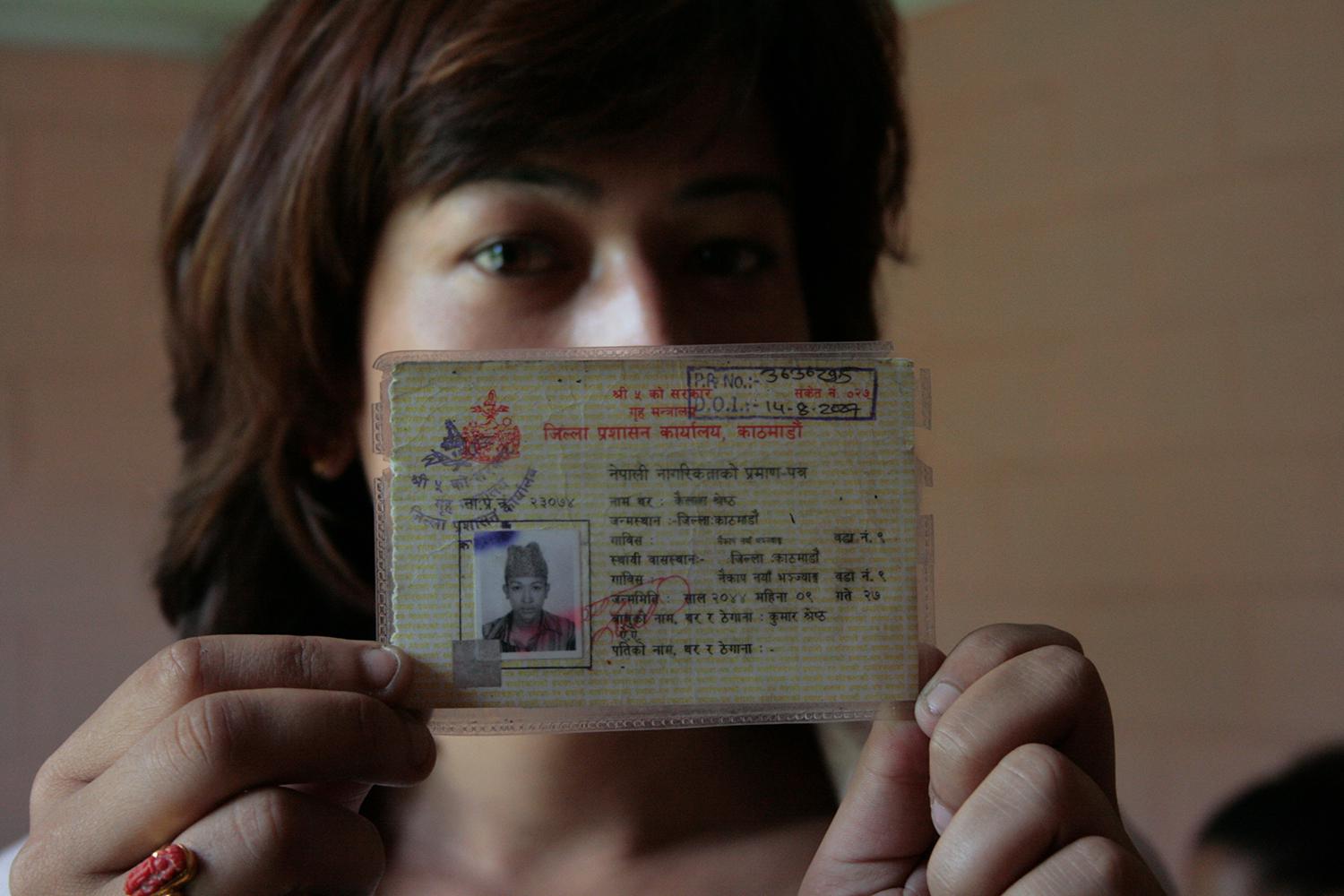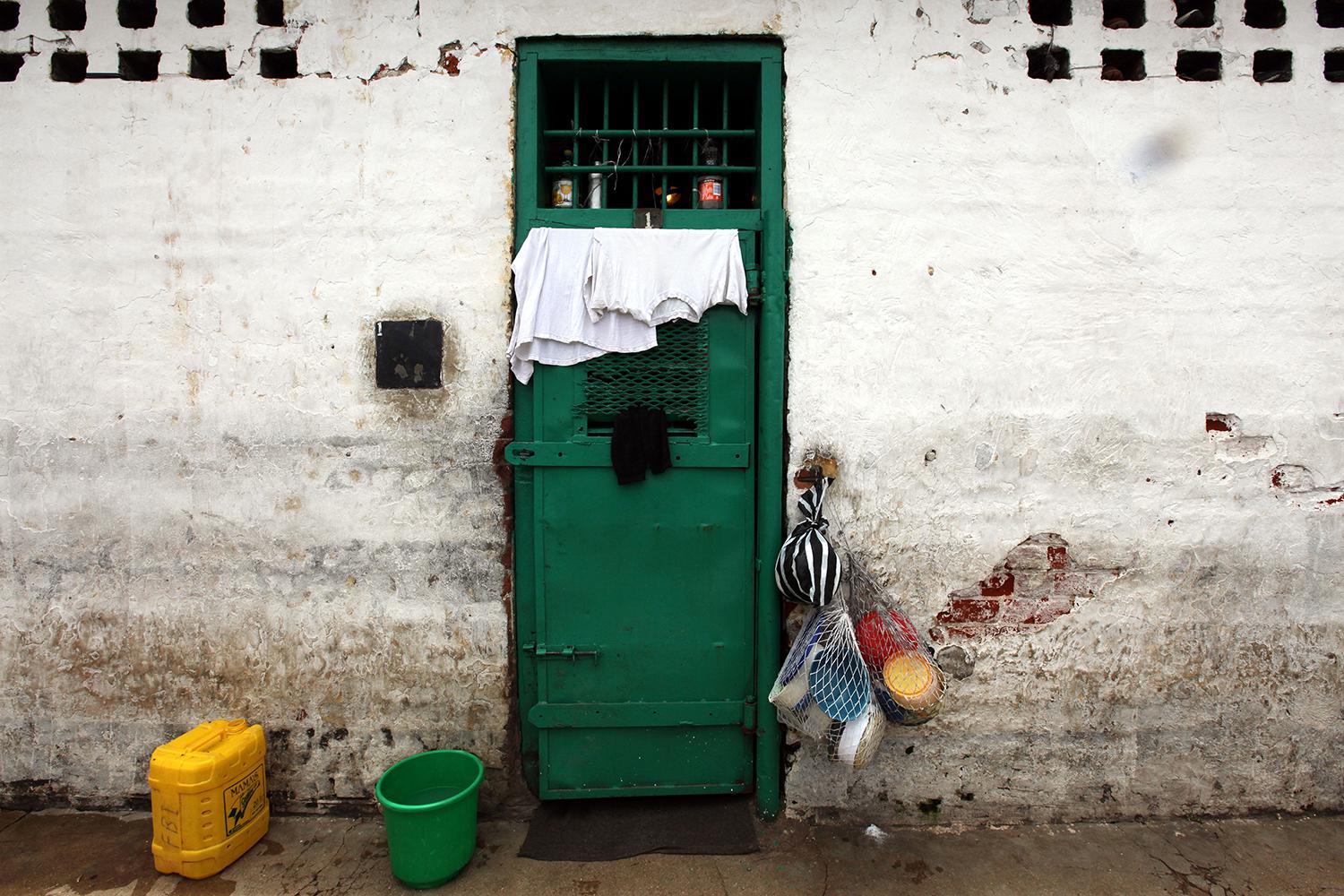There was limited progress in 2015 toward closing the gap between Serbia’s human rights obligations and its practice. Serbia struggled in the face of increasing numbers of migrants and asylum seekers, with poor reception conditions, police abuse, and an inadequate asylum system. Journalists operated in a hostile environment that included attacks, threats, and lawsuits for reporting on sensitive issues. The pace of war crimes prosecutions remained slow. The Roma minority continued to face housing discrimination.
Migrants, Asylum Seekers, and Displaced Persons
Serbia saw a dramatic increase in the numbers of migrants and asylum seekers in 2015, many of them from Syria, Afghanistan, and Iraq, seeking to transit through the country en route to Western Europe. Between January 1 and July 31, Serbia registered 66,428 asylum seekers, nearly 10 times the number registered during the same period in 2014 (6,974). Syrians comprised the largest national group (37,970 people). There are no reliable estimates as to the number of unregistered asylum seekers and migrants present in Serbia.
Due to the significant increase in numbers of asylum seekers, Serbian authorities in July opened a new 300-person reception center in the town of Presevo on the border with Macedonia, bringing the total to six reception centers. But capacity remained limited, and many asylum seekers and migrants remained out in the open without shelter. There were credible reports throughout the year of police abuses and extortion against migrants and asylum seekers. In November, Serbia imposed border restrictions on migrants and asylum seekers, allowing only people from Syria, Afghanistan, and Iraq to entry the country from Macedonia.
As of November 1, Serbia had granted refugee status to a total of 16 asylum seekers and subsidiary protection to 14 others in 2015. Beyond the perversely low recognition rates, the office’s asylum procedures are inadequate, with thousands of pending claims and delays in lodging intention to seek asylum.
During the first seven months of 2015, the Office of the United Nations High Commissioner for Refugees (UNHCR) registered 4,112 unaccompanied children in Serbia, the majority from Afghanistan and Syria, compared with only 98 unaccompanied migrant children between January and September 2014. According to UNHCR, Serbia lacks formal age assessment procedures for unaccompanied children, putting older children at risk of being treated as adults and failing to receive special protection. The two institutions in Serbia for unaccompanied children have a total of only 32 spaces.
Serbian authorities made slow progress in finding a durable solution for refugees and internally displaced persons (IDPs) from the Balkan wars living in Serbia. According to data from UNHCR, as of July 1 there were 35,732 such refugees in Serbia, most from Croatia, and 203,140 IDPs, the majority from Kosovo.
Freedom of Media
Journalists in Serbia face attacks, threats, harassment, intimidation, lawsuits, and political and other interference. Between January and August 2014, the Independent Journalists’ Association of Serbia reported seven attacks on journalists, thirteen threats, and two cases of attacks on property. Authorities prosecuted two cases during the year involving physical attacks on journalists, apparently related to their work.
The independent online news site Balkan Investigative Reporting Network (BIRN) came under criticism in January and February from Serbian government officials, including Prime Minister Aleksandar Vucic, who accused BIRN staff of being liars and BIRN of receiving money from the European Union to discredit the Serbian government.
The criticism followed an investigative piece in BIRN alleging government corruption. Several pro-government news outlets then engaged in a month-long smear campaign against BIRN and its staff, prompting condemnation by the European Commission and international media freedom groups.
The government commission established to investigate the murders of three prominent journalists in Serbia finally made progress in one case, and a trial began in June of four suspects in the killing of Slavko Curuvija. The commission has made no progress in the other two cases under its mandate.
Accountability for War Crimes
War crimes prosecutions in Serbia are hampered by a lack of support from authorities and weak witness protection mechanisms.
Few high-ranking former military and civilian personnel implicated in serious wartime abuses have been held to account in Serbian courts. At time of writing, 14 war crimes trials were ongoing at first instance and 7 were under appeal in the Serbian courts. Indictments had been issued in 16 cases awaiting trial, including eight people charged in September in connection with the 1995 Srebrenica genocide in Bosnia and Herzegovina, the first indictment for Srebrenica crimes in the Serbian courts. Thirteen cases were under investigation.
In 2015, Serbian courts reached judgments in four cases—one war crimes case at first instance and three on appeal—and ordered a retrial in a fifth case.
In June, the Belgrade War Crimes Chamber convicted two defendants in the 1991 killings of civilians in the city of Vukovar, Croatia. In May, the Belgrade Appeals Court upheld the convictions of three defendants for murder, inhuman and degrading treatment, and torture of non-Serbs during the war in Croatia.
In June, the High Court in Belgrade granted the appeal of six defendants overturning their convictions for the wartime killing of 28 Roma civilians in Bosnia and Herzegovina. In March, the Belgrade Appeals Court annulled the first instance convictions of nine defendants in the wartime killing of 118 Albanians in Kosovo in 1999, ordering a retrial.
The Belgrade Appeals Court in November acquitted a former Serbian volunteer fighter of raping two Bosniak women in the Bosnian town of Bijeljina during the war in 1992, ruling that evidence was insufficient. Three other members of the same volunteer unit were convicted of rape and robbery and sentenced to a total of 43 years in 2012.
In November 2014, Vojislav Seselj, the war crimes suspect and nationalist Serbian Radical Party leader, who had been charged with persecution, murder, forced deportation, illegal imprisonment, torture, and property destruction during the Yugoslav wars against Croats, Bosniaks, and other non-Serbs, was granted provisional release for medical treatment by the International Criminal Tribunal for the former Yugoslavia (ICTY). In March, the ICTY revoked his provisional release and ordered his return to The Hague. Seselj defied the order and remained in Serbia at time of writing.
In July, the ICTY heard oral arguments in the prosecution’s appeal of the May 2013 acquittal of former state security officials Jovica Stanisic and Franko Simatovic for war crimes in Bosnia and Croatia during the 1990s. At time of writing, a final verdict was expected in December 2015.
Treatment of Minorities
The Roma minority continued to face discrimination and harassment, particularly in relation to housing.
In July, an informal housing unit in a Romani settlement in the Novi Belgrade municipality was demolished by authorities without prior notification or alternative accommodation for the family living there, according to the European Roma Rights Centre. The remaining 20 families in the settlement faced an ongoing threat of eviction at time of writing.
The planned evictions of 53 Romani families from their homes in Belgrade without alternative accommodation was halted in July after the European Court of Human Rights intervened, issuing an interim order to halt the evictions following a petition from a local human rights organization citing procedural failings and a failure to provide adequate alternative accommodation.
Roma in informal settlements often live in appalling conditions. A May 2015 report on Serbia by the United Nations special rapporteur on adequate housing highlighted the disproportionate number of evictions of Roma, lack of provision of basic services to Roma, and lack of legal security of tenure.
Human Rights Defenders
Human rights defenders continue to work in a hostile environment. Between January and August, the Belgrade Pride Organizing Committee reported between 30 and 50 cases of online threats against LGBT activists to the police. Government officials participated in a successful pride parade in Belgrade in September, amid heavy security and strong statements from top officials that violence would not be tolerated.
A smear campaign against Serbian Ombudsman Sasa Jankovic, which started in late 2014, continued in 2015 when in January the Ministry of Defence described Jankovic as part of an organized campaign to ruin the Serbian army. The campaign against Jankovic followed charges the ombudsman filed against two military police officers for assaulting gendarmerie police at the September 2014 Belgrade Pride Parade. The two military police were escorting relatives of Prime Minister Vucic and the mayor of Belgrade at the time of the incident.
Key International Actors
In March, Federica Mogherini, the European Union high representative for foreign affairs and security, said that Serbia needed to make economic, social, and political reforms, but failed to specifically mention the country’s human rights obligations.
EU Enlargement Commissioner Johannes Hahn in February stated that the EU would not respond to allegations of media censorship in Serbia without concrete evidence, despite ample evidence of a poor climate for media freedom. During a May visit, Hahn stressed the importance of continued dialogue between Belgrade and Pristina for the start of accession talks with Serbia. He also called on authorities to respect the institution of the ombudsman.
The European Commission’s annual progress report on Serbia expressed concern with respect to the independence of the judiciary. It highlighted restrictions on freedom of expression and media freedom. It also called on Serbia to implement its anti-discrimination framework more effectively in order to promote equality and ensure integration of vulnerable groups and minorities.
The United States State Department 2014 human rights report on Serbia highlighted discrimination and attacks against minorities, especially Roma, threats against media freedom, an inefficient judicial system, and long periods of pretrial detention as key human rights issues facing the country.
Kosovo
Human rights protections progressed slowly in Kosovo in 2015. A new government was formed in May, 13 months after national elections. Parliament finally adopted needed legal changes to establish a special court to investigate allegations of serious war crimes. Early in the year, large numbers of Kosovars, mainly ethnic Albanians, applied for asylum in Germany, and most of them were rejected, prompting Kosovo’s President Atifete Jahjaga to appeal to Kosovars to stay.
Kosovo made little progress in implementing programs to integrate increasing numbers of Roma, Ashkali, and Egyptians deported from Germany and other European states. Journalists face threats and intimidation, and prosecutions of crimes against journalists are slow. Tensions between Serbs and Kosovo Albanians continued, particularly in the north. The process of normalizing relations with Belgrade progressed.
Impunity, Accountability, and Access to Justice
The parliament in August adopted constitutional amendments needed to establish a special court to try serious crimes committed during and after the 1998-1999 Kosovo war by former members of the Kosovo Liberation Army (KLA). The court will operate under Kosovo law but with a chamber abroad and internationally appointed judges and prosecutors. At time of writing, Kosovo has yet to sign and ratify a host-state agreement with the Netherlands to operationalize the court.
The special court will adjudicate cases investigated by the Special Investigative Task Force, prompted by a 2011 Council of Europe report accusing some KLA members of abductions, beatings, summary executions, and the forced removal of human organs in Kosovo and Albania during and after the Kosovo war.
In May, the first instance court in Pristina convicted six former KLA members—part of the Drenica Group, made up mostly by former KLA members, including former Skenderaj Mayor Sami Lushtaku—to a total of 65 years in prison for the torture, ill-treatment, and murder of prisoners in the KLA detention center in Likovac. The decision was under appeal as of mid-November.
In June, former Prime Minister Ramush Haradinaj was arrested in Slovenia on a Serbian warrant for alleged war crimes during the 1998-1999 conflict in Kosovo. Slovenia did not extradite Haradinaj to Serbia, but released him later that month.
In April, staff of the European Union Rule of Law Mission (EULEX) exhumed three bodies from a suspected mass grave in the village of Lausa. That same month, Kosovo authorities started searching for suspected mass graves in 20 locations. More than 1,500 people remain missing after the 1998-1999 war.
By the end of September, mixed panels consisting of EULEX and local judges handed down one decision at the first instance level and one case in the Court of Appeals. EULEX has been involved in a total of 35 verdicts since established in 2008.
The Human Rights Review Panel, an independent body set up in 2009 to review allegations of human rights violations by EULEX staff, ruled on two cases during the year. In April, the panel found that EULEX had violated the European Convention on Human Rights by failing to investigate the harm suffered by 116 Roma who spent time in a number of camps for internally displaced persons, some contaminated with lead, during and as a result of the 1999 conflict.
In another case in April, the panel found no violation of the complainants’ rights that could be attributable to EULEX. The case involved alleged brutality by Kosovo police against 10 Serbian citizens who attended Christmas celebrations in the town of Gracanica in 2013. Thirty cases were pending before the panel at time of writing.
The Human Rights Advisory Panel, an independent body set up in 2006 to examine complaints committed by or attributable to the United Nations Interim Administration Mission in Kosovo, found violations in 31 out of 36 cases addressed between January and August.
Treatment of Minorities
Roma, Ashkali, and Egyptians continue to face problems acquiring personal documents, which affects their ability to access health care, social assistance, and education. A lack of political will, funds, and cooperation between central and municipal authorities have contributed to the failure to fully implement the 2010 Strategy for the Integration of Roma, Ashkali, and Egyptian communities.
The 2013 strategy on the reintegration of repatriated persons, including Roma, Ashkali, and Egyptians, resulted in the establishment of the Municipal Office for Committees and Return to help provide food and accommodation. Yet those who have been repatriated still face difficulties accessing employment, education, and health care.
Interethnic tensions persisted in ethnically divided northern Kosovo. In April, a 17-year-old Serbian boy was stabbed in the city of Mitrovica by unknown persons. Eyewitness reported that the perpetrators fled to the predominantly Albanian southern part of the city. Police were investigating at time of writing.
In January 2015, violent clashes erupted between riot police and several thousand protesters demanding the dismissal of Aleksandar Jablanovic, a Serb cabinet minister, who earlier that month called Albanians blocking Serb pilgrims from visiting a church in Djakovica “savages.” Jablanovic was dismissed from his post in February.
Between January and September 2015, Kosovo Police registered five interethnic incidents.
Asylum Seekers and Displaced Persons
During the first 10 months of the year, the United Nations High Commissioner for Refugees registered 619 voluntary minority returns, including people from outside Kosovo and internally displaced persons, up from 547 during that period in 2014.
Forced returns of Kosovo nationals from Western Europe, most of them ethnic Albanian, but also Roma, Ashkali, and Egyptians, significantly increased. This was due in part to the high number of asylum claims filed mostly by Albanian Kosovars in Germany in the first months of the year, the vast majority of which were rejected.
The Kosovo Ministry of Internal Affairs registered 7,380 forced returns between January 1 and September 30, including 320 Roma, 282 Ashkali, and 68 Egyptians. 1,855 children were among those forcibly deported. Most minorities were deported from Germany and returnees are provided limited assistance upon return.
Freedom of Media
Journalists continued to face threats and intimidation in 2015, and investigations and prosecutions are slow. Journalists who report on radical Islamist groups are particularly vulnerable to intimidation. At least one investigative journalist was forced to temporarily leave Kosovo in 2015 because of death threats. By the end of September, the Association of Professional Journalists of Kosovo registered 22 complaints of threats and intimidation, including four death threats, mainly issued via social media, including Facebook. No physical attacks were reported during the year.
Former KLA fighters allegedly threatened Radio Kosova journalist Serbeze Haxhiaj because she was investigating whether people who were not war veterans were included on war veteran lists to gain significant pension benefits. Radio Kosova, a public radio station, has not aired Haxhiaj’s investigation because of what she describes as “censorship.” She did not file a police complaint.
Key International Actors
European Union High Representative Federica Mogherini in August said that constitutional changes the Kosovo Assembly passed marked “a crucial step” in addressing “serious allegations” stemming from a 2011 Council of Europe report accusing some former KLA members of war crimes.
The United States government in August welcomed the constitutional and other legal amendments required for establishing the special court. That same month, United Nations Secretary-General Ban Ki-moon issued a report on Kosovo urging authorities to accelerate the establishment of the special court.
Germany in September declared that Kosovo, Montenegro, and Albania are safe countries of origin, meaning that asylum claims from Kosovo will be processed under accelerated procedures with the presumption that claimants do not need international protection.
The October EU Commission progress report on Kosovo stated that the administration of justice is slow, lacking accountability of judicial officials, and that judicial structures continue to be prone to political interference. The report also highlighted the lack of progress in the area of freedom of expression and called on Kosovo authorities to thoroughly investigate physical attacks and other types of pressure on journalists. It stressed that authorities at central and local levels did not do enough to facilitate return and reintegration of refugees and internally displaced persons.
The US State Department Human Rights Report human rights report on Kosovo, published in June, raised concerns about freedom of movement and worship by Serbian Orthodox pilgrims, domestic violence against women, and discrimination against ethnic minorities, persons with disabilities, and members of the lesbian, gay, bisexual, and transgender community.




